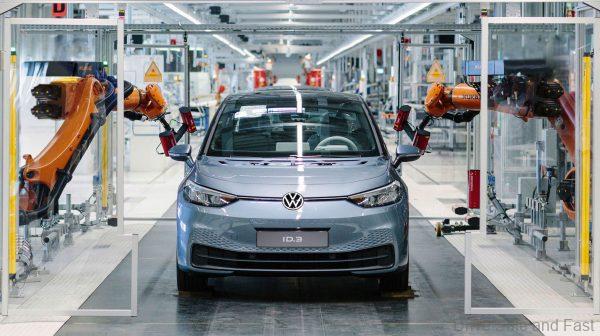Yes, a record 20,000 units of electric powered vehicle (EV) were bought by Germans in just September this year.
The number of new electric vehicles rose to 21,188 in September which is an increase of 260 per cent compared to 12 months ago. This information was shared by the country’s Federal Motor Transport Authority KBA in a press release.
Battery electric vehicles (BEV) now account for an 8 per cent share of the new car sales market. Registrations of hybrid cars rose 185.2 per cent to 54,036 vehicles, resulting in a share of 20.4 percent, where 20,127 were plug-ins (PHEV) which is an increase of 463.5 per cent for a total share of 7.6 per cent.

The Centre of Automotive Management (CAM) increased its e-mobility forecast after this good news. It said it expected 300,000 BEV and PHEV to be registered in 2020, up from a previous forecast of 150,000 units.

On the other side of mobility, the registrations of petrol driven vehicles declined almost 18 per cent to 120,645 units, however their total market share remained high at 45.5 per cent. Diesel powered vehicle sales fell by 6.4 per cent to still a high 67,901, a share of 25.6 per cent. With all the diesel emissions issues coming from Dieselgate and the recent Mercedes-Benz diesel issues, there still seems to be a good record of diesel vehicle sales.
Average CO2 emissions fell 13 per cent compared to a year ago, to 134.3 grams per kilometer.

So, what were the best selling electric cars in Germany. At the No.1 position is the French made Renault Zoe with 3,603 units and then this is followed by the Tesla Model 3 in second place with 2,776 units and then in third place we have the made in Germany Volkswagen ID.3 with 1,771 units. It must be noted that deliveries for this new Volkswagen only started last month and its bookings in Germany is rising fast like with the Proton X50 in Malaysia.
So, Europeans are rushing to get an electric VW in their garage and we Malaysians are rushing to get a 3-cylinder Crossover in our garage because we have different priorities in our automotive lamdscape.
First, a national car program that has not be national for a few years now. Parts and technology continue to be imported and it can clearly be seen with the slowdown in new car parts and spares for existing models which comes from China. Even India has overtaken Malaysia with EV policies and adoption and they have national car brands working on a fair playing field.
Then we have policy-makers that are more interested in holding weekly press conferences to sign MOU’s instead on working on tax incentives to promote the adoption of electric vehicles in Malaysia.